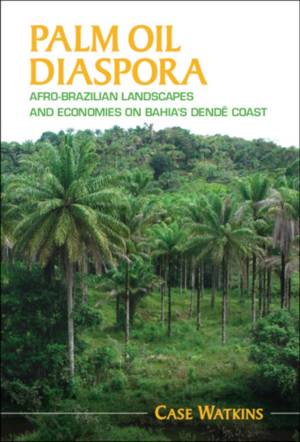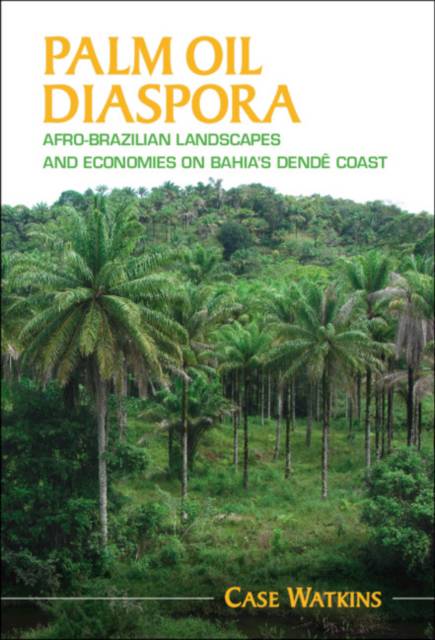
- Afhalen na 1 uur in een winkel met voorraad
- Gratis thuislevering in België vanaf € 30
- Ruim aanbod met 7 miljoen producten
- Afhalen na 1 uur in een winkel met voorraad
- Gratis thuislevering in België vanaf € 30
- Ruim aanbod met 7 miljoen producten
Zoeken
€ 144,45
+ 288 punten
Uitvoering
Omschrijving
Behind the social and environmental destruction of modern palm oil production lies a long and complex history of landscapes, cultures, and economies linking Africa and its diaspora in the Atlantic World. Case Watkins traces palm oil from its prehistoric emergence in western Africa to biodiverse groves and cultures in Northeast Brazil, and finally the plantation monocultures plundering contemporary rainforest communities. Drawing on ethnography, landscape interpretation, archives, travelers' accounts, and geospatial analysis, Watkins examines human-environmental relations too often overlooked in histories and geographies of the African diaspora, and uncovers a range of formative contributions of people and ecologies of African descent to the societies and environments of the (post)colonial Americas. Bridging literatures on Black geographies, Afro-Brazilian and Atlantic studies, political ecology, and decolonial theory and praxis, this study connects diverse concepts and disciplines to analyze and appreciate the power, complexity, and potentials of Bahia's Afro-Brazilian palm oil economy.
Specificaties
Betrokkenen
- Auteur(s):
- Uitgeverij:
Inhoud
- Aantal bladzijden:
- 320
- Taal:
- Engels
- Reeks:
Eigenschappen
- Productcode (EAN):
- 9781108478823
- Verschijningsdatum:
- 20/05/2021
- Uitvoering:
- Hardcover
- Formaat:
- Genaaid
- Afmetingen:
- 152 mm x 229 mm
- Gewicht:
- 707 g

Alleen bij Standaard Boekhandel
+ 288 punten op je klantenkaart van Standaard Boekhandel
Beoordelingen
We publiceren alleen reviews die voldoen aan de voorwaarden voor reviews. Bekijk onze voorwaarden voor reviews.











